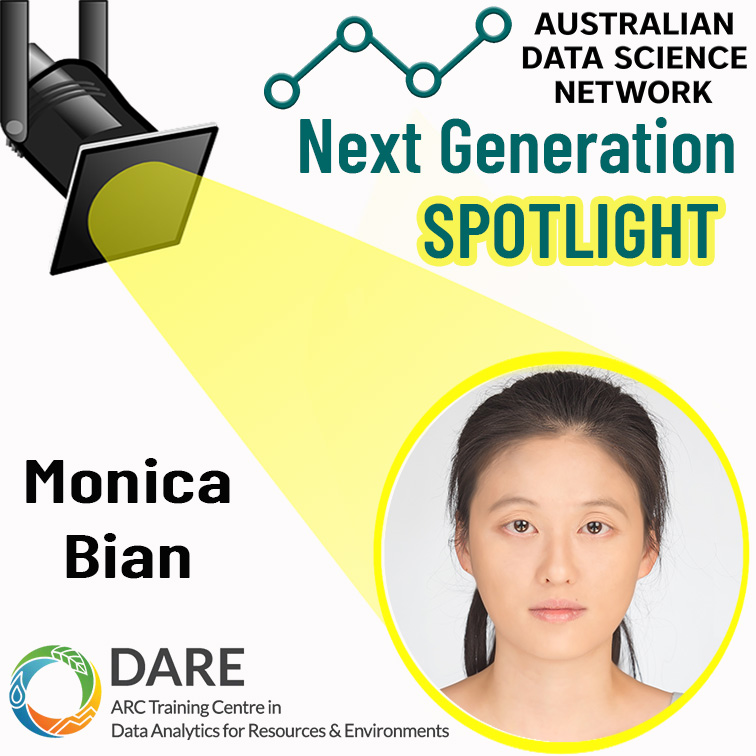“Next Gen” Spotlight: Dr Monica Bian

My name is Ranran (Monica) Bian. I am a Postdoctoral Research Fellow at DARE (The ARC Training Centre in Data Analytics for Resources and Environments) at the University of Sydney. My projects at DARE consist of both foundational and applied research. For the foundational research, I am currently working on network representation learning algorithms in data streams. For the applied research, I am working on adapting and applying data science methods and frameworks in natural related domains, such as water, biodiversity. (The University of Sydney is an early adopter of the TNFD (Taskforce on Nature-related Financial Disclosures) initiative). I obtained my PhD degree in Computer Science from The University of Auckland (New Zealand) in 2020.
My PhD focused on heterogeneous network mining and analysis, where innovative data science and machine learning algorithms for community discovery, ranking, dynamic embedding and change modelling in different heterogeneous networks were developed, implemented and evaluated. A New Zealand based data mining company proposed and funded the research. The company identified the gap in heterogeneous network related methods from their business practices. I then managed to transfer the industry identified gap into proper research gaps and made some progress. By collaborating with the company, I was able to understand real world applications and needs of their clients as well as to shape my PhD as a practical project and something useful in the company’s long-term R&D road map.
Any surprises or highlights from your PhD or your current postdoctoral work?
A very recent surprise that I had from one of my current projects was that sometimes the domain experts would depend on the data scientists for answers to some domain questions. For instance, when discussing about biodiversity with some marine scientists and soil scientists, they would ask me what are the indicators/metrics of “a good biodiversity” for the marine environment and soil. For the domain experts, it is hard for them to decide which metrics should be included and why. In this kind of scenarios, they would like to get inputs from the data scientists to provide valid justifications behind the metric selections.
How did you get interested in Data Science?
I first got into Data Science related research in my Masters research project. The network and graph focused research fascinated me so I continued this area of research in my PhD. Nowadays, understanding that there are potentially plenty of applied projects that are in line of my research interests and background keeps my strong passion in Data Science.
What do you see as the big challenge facing the ADSN and the entire Data Science Community? Is there a big research question we should be tackling?
I am particularly interested in developing efficient and effective methods for data streams. Given the zillions of data generated every day, in my opinion, this is a big challenge facing the community.
Fun fact about yourself
I like pop music and I enjoyed myself very much in the Taylor Swift and Jay Chou concerts in Sydney. I also like movies (e.g., The Big Shot, Oppenheimer). I sometimes release my work and life stress by sports (swimming, badminton). Although I am not really very good at these sports, I do enjoy doing them.